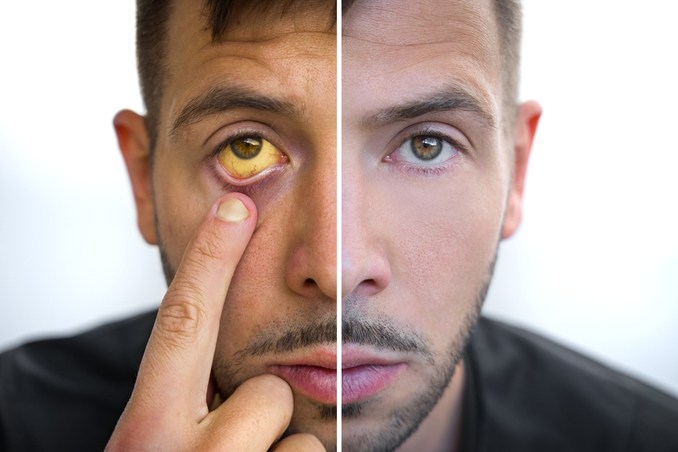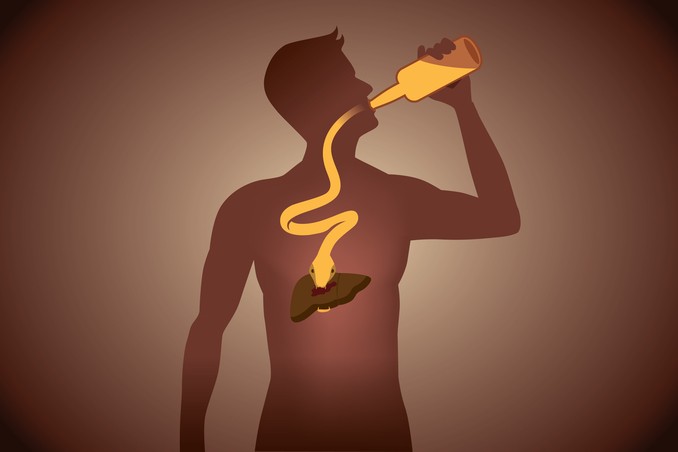Identifying Alcoholic Traits
Table of Contents
- Identifying Alcoholic Traits
- What is an Alcoholic?
- Symptoms of an Alcoholic Use Disorder
- Common Symptoms of an Alcoholic
- Symptoms of an Alcoholic vs Problematic Use
- Understanding Problematic Use vs Alcoholism
- Severe Symptoms of an Alcoholic
- Is Alcohol is the Cause of These Symptoms?
- Getting Help For Symptoms of an Alcoholic
- Medically Reviewed By
Even the common symptoms of an alcoholic may not be obvious, but are medically outlined in a document entitled “DSM-5 ”. This is a publication of the American Psychiatric Association. This document provides professionals in the mental health field the ability to diagnose a patient based on the standardized symptoms of an alcoholic. This can allow them to identify mental health disorders, as well as alcohol use disorders.
What is an Alcoholic?
The term “alcoholic” is used often in society, but it may be difficult to truly understand the symptoms of an alcoholic. Since most professionals must use a standardized term, alcohol use disorder provides that in the medical field. Although signs of withdrawal are common symptoms of an alcoholic, it goes much deeper than that. Physical signs of alcoholism are another way to determine this, along with behavioral and psychological symptoms.
Symptoms of an Alcoholic Use Disorder
Every person experiences alcohol abuse differently, therefore the symptoms of an alcoholic are always different. Even though we have the 11 factors from the DSM, they can emerge in different ways. It is important to note that experiencing at least two of the 11 factors means that an alcohol use disorder exists.
Consider the following to understand whether or not you have an alcohol use disorder.
Is there interference with work, school, family, or other responsibilities due to alcohol consumption? Perhaps you continue to consume alcohol despite there being a negative impact on relationships. In addition, you may engage in risky behavior after drinking, which might include fighting, swimming, driving, having unprotected sex, or operating machinery.
Finally, if you notice that you require more alcohol in order to feel the same effects as before, then you are experiencing an increased tolerance.
Common Symptoms of an Alcoholic
If you do not address your alcohol use disorder, the symptoms can spiral out of control. Alcohol will eventually cause harm to your life if it hasn’t already. Once you notice any negative effects on your life, it is diagnosed as an alcohol use disorder.
Although it might be hard to recognize these symptoms in yourself or someone else, this can be all the difference in your recovery process. It is essential to remember that everyone’s symptoms and journey through addiction is different.
Common symptoms of alcoholism include:
- Blackouts
- Short-term memory loss
- Signs of irritability
- Extreme mood swings
- Making excuses for drinking, whether that is to relax, to deal with stress or feel normal
- Choosing to drink over other responsibilities
- Becoming isolated and distant from friends and family members
- Drinking alone or in secrecy
- Feeling sick when not drunk
- Changing appearance suddenly
- Changing friends or the group of acquaintances you hang out with
Symptoms of an Alcoholic vs Problematic Use
According to the DSM-5, moderate use of alcohol is associated with various factors. These include the frequency of drinking, and well as the intention. Drinking socially once per week with the intention of having fun is far different than having an emotional attachment to drinking. If you drink when you need to counteract pain or suffering, then you are at a higher risk for developing symptoms of an alcoholic.
Those who are problem drinkers typically associate their use with a loss of control. This means that you most likely will not be able to stop drinking once you decide to do so. If you notice that your progression of drinking is impossible to stop on your own, then you will typically display at least three to five of these symptoms. At this point, this is considered a moderate use disorder. Although you may not be physically dependent on alcohol, you may still be emotionally addicted.
Understanding Problematic Use vs Alcoholism
- Do you have an attachment to drinking: This means that you might need alcohol to have a good time. This means that you may develop problematic drinking habits that eventually lead to an alcohol use disorder. Once this occurs you are going to have a much more difficult time battling the withdrawal symptoms that come along with physical addiction.
- Taper down slowly: Also known as “going cold turkey,” it is essential that you slowly decrease your alcohol intake rather than all at once. Most addiction professionals agree not to go cold turkey, which includes avoiding at-home detox. Instead, you can go through the process of medical detox to do so safely with the help of an addiction counselor.
- Medical detox: Medically supervised detox is essential in many cases of alcoholism. Typically it will depend on how long you have abused alcohol, and how much you typically consume. Most often alcohol withdrawal causes major risks, and by going through a medical detox you decrease your risk of fatal or painful withdrawal symptoms.
Severe Symptoms of an Alcoholic
Within the 11 factors set forth in the DSM-5, if you suffer from six more, then you are considered to have a severe use disorder. This means that you have a severe need for treatment. These negative symptoms of an alcoholic can include poor health, conflict with family, lying, stealing, and more.
There are a huge number of highly functioning alcoholics, which make up 20% of the alcoholic population. Being a high-functioning alcoholic facilitates the ability to go to work, make a good living, and meet all of the obligations to survive. Despite this, the health problems and emotional instability will catch up with them eventually.
Severe symptoms of an alcoholic include both the signs of alcohol withdrawal, such as seizure, as well as the following:
- Any form of cardiovascular disease
- Anemia
- Dementia
- Cirrhosis
- Cancer
- Seizures
- Depression
- High blood pressure
- Nerve damage
- Pancreatitis
- Gout
- Infectious diseases
Is Alcohol is the Cause of These Symptoms?
Although you may have the above symptoms already, abusing alcohol can make them worse. Whether or not alcohol abuse is the root cause of these symptoms, it can make the condition flare up.
There are symptoms of an alcoholic that may cause other diseases and conditions, such as mouth cancer. Despite this, it is difficult to understand whether or not these are due to the symptoms of an alcoholic, or simply because of another cause. Regardless, if any of the above symptoms of an alcoholic are experienced, it is important to take a look to decide what the best course of action should be.
Getting Help For Symptoms of an Alcoholic
The symptoms of an alcoholic may not be obvious, but always have consequences. Whether this is on you as the family of someone with an alcohol use disorder, or as the alcoholic themselves. Sobriety is always the answer. At Find Addiction Rehabs we can offer you information to help learn about the different treatment options available to you. Contact us today.
Bryan was born in Philadelphia and remains an ardent supporter of Philadelphia sports. After attending FSU and FAU where he majored in writing, Bryan ventured out to follow in the footsteps of his idols, running straight into drug addiction. After being arrested by the President’s Secret Service, Bryan finally started to rebuild his life and beat that monkey off of his back through writing, playing music, and studying Buddhist philosophy.
Despite still having the occasional struggles with mental health, Bryan strives to be a little bit better a person each day. With the support and love from a loyal family, and kind-hearted and generous friends, Bryan tries to help people vanquish their own personal demons as he did and bring more love and beauty into a pessimistic world.




